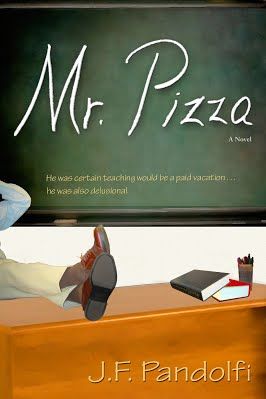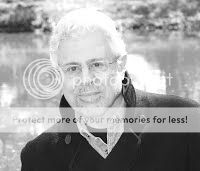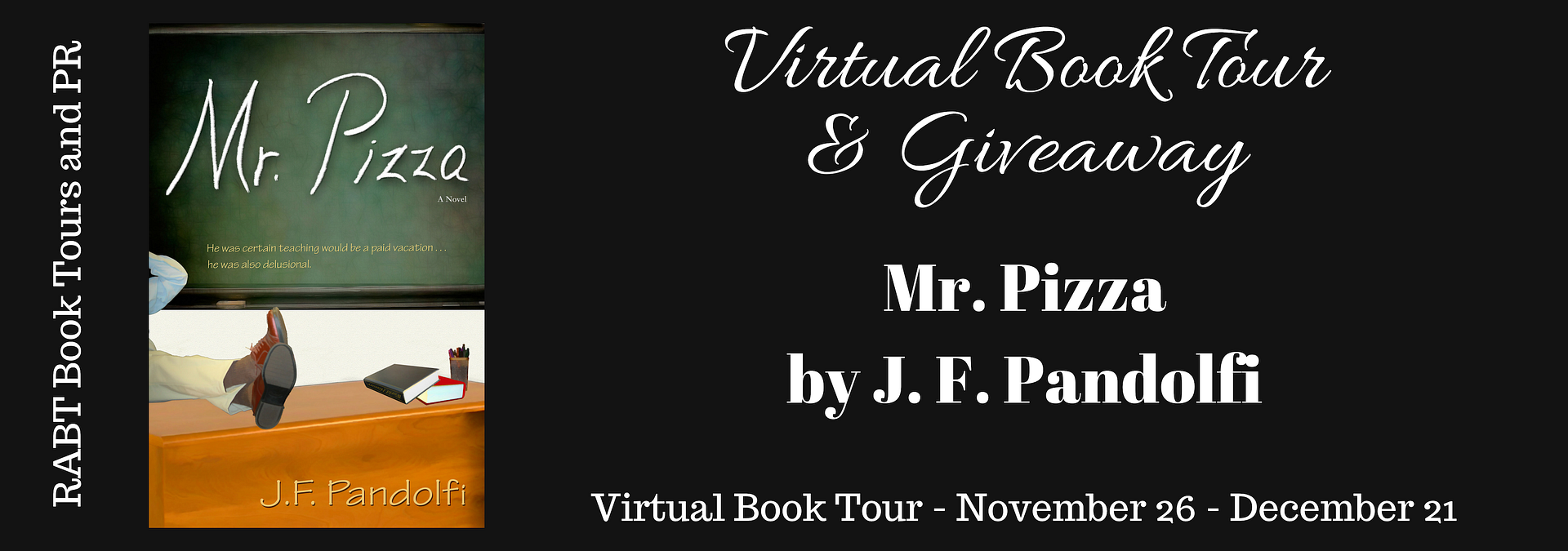December 2018
Monthly Archive

I hope you enjoyed reading how my characters celebrate Christmas on the island of Trinidad. If you haven’t read the post yet, you can get it here.
Today’s post is a short one to inform you that In the Promised Land, book 3 of the Egypt trilogy goes on sale from tomorrow. This book, which I like to call a modern-day Sound of Music, will make a perfect gift for yourself or someone this Christmas.
Here’s a short description:
Marva and June are two sisters who have come out of an abusive childhood and are now on the way to achieving their dreams. Marva is a nun at a school for delinquent girls; June is a law student. All seems to be going well for them, until their adoptive father is killed in a Muslim coup. Marva, always the strong, dependable one struggles to help the family cope with this and other unexpected crises. But she finds herself weakening. When her childhood friend, who has always had a romantic interest in her, reaches out to her, Marva finds herself torn between her love for him and her commitment to God. Romance, faith and intrigue are all intertwined in this gripping novel.
If you love nun’s stories, you would want to get your copy of In the Promised Land now while it’s on sale.
You can also read In the Promised Land free on Kindle Unlimited. Whatever medium you choose, I, and other readers, would appreciate it if you would leave a review on Amazon. Thank you and Merry Christmas!
Share on Facebook
 I don’t know if it’s my imagination, or if it’s because Christmas ads and decorations began showing up way before Thanksgiving, but whatever it is, people seem to be making a bigger fuss about Christmas this year. For me, that’s a good thing. As a Christian, I love Christmas and all it signifies. As an author, I’m also noticing a lot of Christmas-themed books, and while my Egypt series is not based on Christmas, books 1 and 2 carry some Christmas scenes that will give you a glimpse of how my characters, and people in Trinidad where the story is set, spend Christmas.
I don’t know if it’s my imagination, or if it’s because Christmas ads and decorations began showing up way before Thanksgiving, but whatever it is, people seem to be making a bigger fuss about Christmas this year. For me, that’s a good thing. As a Christian, I love Christmas and all it signifies. As an author, I’m also noticing a lot of Christmas-themed books, and while my Egypt series is not based on Christmas, books 1 and 2 carry some Christmas scenes that will give you a glimpse of how my characters, and people in Trinidad where the story is set, spend Christmas.
Here is an excerpt from In The Wilderness: Book 2 of the Egypt series:
At last it’s Christmas Eve. Miss Lucy and her daughter have gone home, and we sit in the living-room admiring the Christmas tree and the decorations and sipping egg nog. Below the tree is an assortment of boxes wrapped in shiny gift paper and tied with pretty bows. The television shows women in beautiful frilly skirts and blouses with flowers in their hair, singing and dancing. The songs are in Spanish and they call them parang.
I’m holding Junior on my lap. June sits on the rug at my feet, her head resting against my legs. Junior tugs at her hair.
“Ouch!” She holds her head, and he squeals.
Across from us, Chrissy, seated on her father, also squeals and drops her rattle.
“Did we do this in Egypt Village?” I ask.
June turns her head. “Do what?”
“Sit around the tree and drink egg nog and watch TV.”
“I don’t think we ever had a tree. And we didn’t have a TV.”
No tree? It’s such a beautiful thing. I can’t understand why everyone wouldn’t have one. And no TV either? “We couldn’t afford it?”
June shrugs. “I don’t know.”
That’s another thing I don’t understand. She never wants to talk about our childhood and Egypt Village.
Junior takes another tug at her hair and she sidles away. “Come here, you.” She lifts him off my lap.
I turn to Miss Stewart. “Did you always do this?”
She smiles. “Yes, we did.”
I look at Mr. Bowen.
He nods. “We did, too. And you know what else we did?”
Everyone looks at him. “We sang Christmas carols and told the story of the Savior’s birth.”
“I didn’t know that,” his wife says.
He gazes at her. “Remember I came from a Christian home. When we lived in New York, we went to church on Christmas Eve night.”
“Was it snowing?” June asks.
“Sometimes, but we kids loved it. We would all bundle up in our coats, hats and gloves and sing carols while Dad drove us to church. When we came here, it took us a while before we found a church, so Mom made egg nog and we sat around and did the Christmas thing.”
“The Christmas thing?” June asks.
“Yeah. We sat around the crèche and told the Christmas story.”
That touches me. We don’t have a crèche, but maybe we can do the Christmas thing too.
Feeling shy, I ask, “Can we do that now?”
“Why not?” Miss Stewart gets up and turns off the TV. “Where do we start?”
June bounces Junior on her leg. “Let’s start with ‘Once upon a time.’”
Mr. Bowen picks up Chrissy’s rattle. “Okay, here’s how we did it. One person says a few lines of the Christmas story, then we sing a verse of a carol. Then the next person picks up the story from where the last person left off, we sing another verse and so on.”
“Sounds great,” Miss Stewart says. “I’ll go first. Once upon a time there was a man named Joseph, and he had a wife named Mary who was pregnant.”
June puts her hand up. “Joseph and Mary journeyed to Bethlehem in order to be taxed, in keeping with a decree from the emperor Cesar Augustus.”
“You forgot the song,” I say.
June slaps her forehead. “I’m sorry.” She clears her throat. “Silent night …”
We all join in the singing. When we finish the first verse, she repeats the lines she’d said, then everyone looks at me. I smile as I continue the story. “While they were there, Mary realized that it was time for the baby to be born.”
We sing another verse then Mr. Bowen continues, “Joseph tries to find a room in an inn so Mary could give birth, but he found none.”
We continue like this until Mr. Bowen ends with the angels telling the shepherds, “Glory to God in the highest and on earth peace and goodwill toward men.”
I look down at Junior now asleep on June’s lap. I think of the Baby Jesus who came into this world as small and innocent as this baby even though He was God Himself. What a beautiful story!
June interrupts my thoughts. “Sister, I’m impressed that you remember the Christmas story so well.”
I turn to her. “Some things I’ll always remember, but the things I want to remember, I don’t.”
There you have it. Christmas with Marva, June and the Bowen’s. To read more about the Christmas celebrations with the Bowen’s, why not pick up a copy of the book on sale for only 99c. this weekend. And drop me a line and let me know how you spend Christmas at your house.
Share on Facebook
Have you ever wondered how an author comes up with pages and pages of content that keep you absorbed for hours or even days? How do they edit it so it’s error-free and worthy of being read? In this guest post, J. F. Pandolfi, author of Mr. Pizza, a mainstream novel, takes us behind the scenes and shows us what his writing and editing process is like. Enjoy!

Date Published: August 3, 2018
Publisher: L&A Publications
Most people make at least one really harebrained decision in their life. Just ask Tony Piza. Deciding he needs a “paid vacation” for a year after college, Tony lands a job teaching at a Catholic elementary school. Talk about the Moby Dick of miscalculations. His pathetic effort is making him look bad, crimping his love life, and leaving him feeling guilty. A new approach, fueled by his irreverent humor, makes him a hit with his students. But it riles the powers that be. A showdown seems inevitable. Whether he can survive it—well, that’s something else.
My Writing Process—Still a Work in Progress
by
J. F. Pandolfi
Writing fiction pretty much involves coming up with a beginning, a middle, and an end. But it’s how we choose to get from one phase to another that can be all over the map.
In writing “Mr. Pizza”, my first novel, I synopsized every scene before penning the first word of the first chapter. Some people are just more comfortable planning every step of the journey upfront. In my case, I think that resulted from having practiced law for many years, which has a tendency to induce chronic anal retentiveness. That said, during the course of writing there were times when the story decided it wanted—even needed—to veer off the pre-determined path. Those detours turned out to be the most exhilarating part of the experience for me.
So for my new book—a sequel that takes place twelve years after the first book ends—I decided to toss out the old game plan. I knew the general storyline I wanted to pursue, but that was it. I just started writing. I’m currently about a quarter of the way through my projected page count. Has it been unsettling? You bet. Like being adrift on a raft in open seas. Or how I felt when my parents took away my pacifier when I was eleven. (What, like you don’t have any issues?) Another thing that required getting used to was taking time after a chapter to figure out what comes next. Other than those occasional detours I mentioned, I didn’t have to deal with that in writing “Mr. Pizza”.
On the whole, I think the occasional angst, and the sometimes lengthy post-chapter interludes, have been a fair trade-off for the excitement of making new discoveries as each chapter comes into focus. But that may change as I get deeper into the book. I’ll have to see. If I find it’s turning out not to be the ideal route, I’ll tinker with some hybrid middle ground.
Another subject I wanted to touch on is: revising your work, i.e. self-editing. It’s something we all need to do, more than once, before having a professional editor take a look. There’s a theory that says you shouldn’t edit on-the-fly. Get through your first draft, then go back to the beginning and start editing. Supposedly, editing as you go disrupts your artistic flow.
But I need to do my first edit of a chapter as soon as the chapter is done. It has to feel right to me before I can move on. I don’t think it’s blocked up my creative aqueduct. (Although I’m not a psychologist, neurobiologist, or plumber.) I’ve also found there’s a practical benefit to how I work. If you change something substantive in a chapter, it could impact a subsequent chapter. By editing each chapter as I write, I can limit—to a degree—that potential domino effect. I may make additional changes when I re-edit, but they’re usually not as significant.
Writing doesn’t lend itself to one-size-fits-all. Explore the self-editing process until you find the method you’re most comfortable with.
Keep writing, and good luck!
About the Author

J. F. Pandolfi went to Fordham University as an undergrad, then taught at a Catholic elementary school before attending Fordham Law School.
Practicing law certainly had its moments, but to call it “utter euphoria”—well, that was a stretch. Plus, the voices that had taken up residency in his head (rent-free, the deadbeats) kept insisting that he share his writing with the world. An award for his flash fiction piece, “Psychology for Dummies”, convinced him that the voices might be on to something. And so he called upon his fond memories as a teacher, which served as a backdrop to his debut novel, “Mr. Pizza”.
J. F. also briefly believed he had won the New York City Marathon. Alas, it turned out to be a dream, apparently brought on by an acute case of restless leg syndrome.
A staunch supporter of the fight to eradicate adult illiteracy, J. F. was accorded a Special Recognition in Literacy Award for his efforts.
Share on Facebook
Here is an interview I did with Ndeye Labadens, author of How to Crush Social Media in Only 2 Minutes a Day and moderator of the Ndeye Labadens Book Club.


In this interview, I talk about how I came up with the title for the first book in the Egypt series, Coming Out of Egypt and other behind-the-scenes information of my debut novel. Some of it you may already know if you read my blog regularly, but regardless, I invite you to grab a cup of your favorite beverage, (tea, anyone?) pull up your chair and enjoy.
My name is Angela Joseph. I am the author of one non-fiction book Women For All Seasons and the Egypt series, three fiction books. I am also a blogger and freelance writer for health and wellness sites.
What’s the story behind the title?
The story behind the title goes back to the time when I was a teacher in Trinidad. Two sisters attended the school where I taught, although neither of them were my pupils, and it was rumored they were being abused by their father. They lived in a secluded home in a place called Egypt Village. Coming Out of Egypt deals with the journey of two sisters who lived in the same locale and were abused by their father. I have also used the Biblical story of the exodus of the Israelites out of Egypt as a metaphor for the turbulent journey of these two sisters out of an abusive childhood.
Why did you write this book?
Stories of sexual abuse are in the news every day. It is neither obsolete nor pertinent only to third world countries, yet victims of sexual abuse do not receive the help or attention they deserve. I wrote this book to inspire and encourage women, as well as men, who have been sexually abused and let them know that they have self worth. That they too can “come out of Egypt” and find love, understanding and forgiveness.
How do you keep the reader attention?
I keep the reader’s attention by pacing the plot points in such a way that the reader wants to know what happens next, but at the same time doesn’t skip over any part of the narrative. For example, a high-tension scene where Cicely’s father tells her fiancé that Cicely was a nightclub dancer in an attempt to break them up, is preceded by a tropical rainstorm in which she is almost marooned on the beach. The reader can feel the tension building. I also sprinkle cultural titbits throughout the novel that give them a glimpse of Trinidad culture and add depth to the story.
How did you come up with this book idea?
The idea came to me when I saw TV personalities like Oprah Winfrey and popular televangelist Joyce Meyer and others talking openly about their experience with sexual abuse. I thought if these women could “come out of Egypt” to become who God created them to be, then anyone, with God’s help, could do the same. So, I decided to rewrite the story of those two pupils I knew in Egypt Village.
What publishing elements do you most enjoy and most like to avoid, and why? (e.g., design, marketing, formatting, etc.)
Once the ink has dried, I wish I could wave a magic wand and make all the rest involved with publishing disappear, but unfortunately that is not case. So, while I don’t enjoy any of them, I get some satisfaction when I see even my limp marketing efforts bear some fruit. I strictly avoid design and formatting. I tackle editing with a vengeance because I know how important that is.
What’s next on your writing journey?
I am currently working on another women’s fiction set in Georgia. It deals with three friends and their secrets. I also have a fun, romantic novella that I started some time ago that I would like to complete. In addition, I will continue blogging and freelancing for health and wellness sites. I will also continue to promote Coming Out of Egypt and the other books in the series, In the Wilderness and In the Promised Land.
Where would my audience find your book?
Just click the image below.


Share on Facebook













